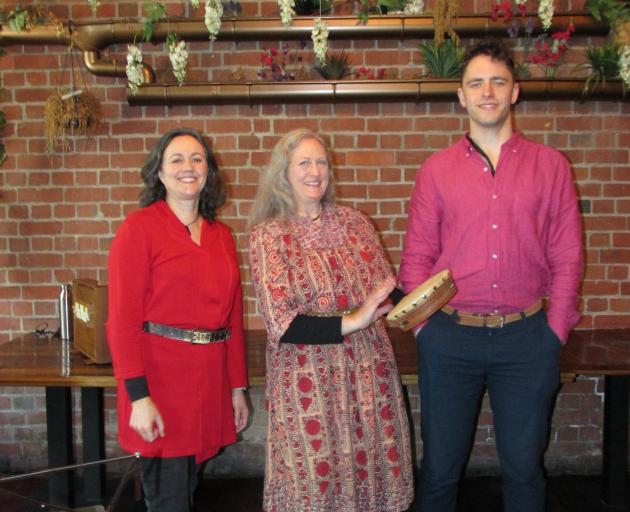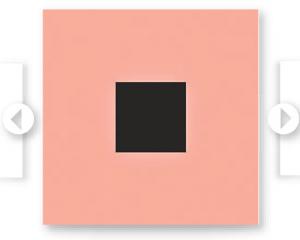
Singing music originally written for 18th-century Italian castrated singers to perform is a new experience for Pepe Becker.
Written by Italian composer and teacher Nicola Porpora (1686-1768) and sung by Farinelli, a famous castrati (male singers castrated before puberty to retain their voice to that of a soprano or contralto), who was considered one of the first operatic superstars, it is music that is new to Becker.
"Some of the music is quite virtuosic, there is a lot of notes. DFFThose castrati, it was quite flashy music. It’s really interesting knowing I’m singing a trouser role in a couple of the songs. It’s quite different, a soprano singing music first sung by castrati who have this different sound and, of course, larger lung capacity than a woman."
But it is challenges like this that really get Becker excited, especially when performed alongside the period instruments of the Southern Baroque Ensemble. She is also performing Handel and Vivaldi music that she has not performed before.
"I’m having to really get my socks up again for some of the notes. It’s taken some personal discipline, remembering back to my student days and having that regular practice time.
"It’s a real privilege to sing it. It’s hard work but very rewarding."
Becker is touring the South Island with the ensemble, a much looked forward to trip as it reunites her with cellist Tomas Hurnik, of the Baroque Music Community and Educational Trust of New Zealand, whom she first performed with 10 years ago and sees her perform in her home town of Nelson.
"He’s doing great things with the trust and I like his style and really like working with him."
Hurnik has brought two baroque musicians from Europe for the tour, harpsichordist Edita Keglerova, of the Czech Republic, and violinist Szabolcs Illes, of Hungary, to join the group which includes Christchurch musicians violinist Rakuto Kurano and viola player Sara Kadas.
"It’s cool. There is a real age span in this group. Tomas is fostering the talent of young up-and-coming players wanting to learn on Baroque instruments. It’s great, giving them the chance to perform with professional musicians."
For Becker, as the pitch is slightly lower with these instruments, it creates a more mellow sound and enables her to be more equal with the instruments.
"It makes a real difference with the singing. I like the idea of being one of the team. Instead of being the diva soloist, it’s as if you are two instruments together, making beautiful music. It’s a beautiful interaction with the violin part, especially."

"That was the best start ever in music. Back then I sounded like a boy treble, but my voice has matured since then."
As she was more interested in early music (Medieval, Renaissance and Baroque) rather than classical or later opera, she did not study performance music at Victoria University, instead choosing to study composition. One of her first-year compositions won third prize in the 1985 VUW Composers Competition, and one of her third-year choral compositions, Wind and Rain, was performed by the VUW Chamber Choir at the 1988 Sonic Circus organised by Jack Body, and subsequently by Cantoris in 1990.
Then one day she walked into her singing teacher’s house to hear the medieval music of German composer Hildegard von Bingen (1098-1179) sung by English soprano Emma Kirkby and others. Von Bingen’s chant-like music was considered to be ahead of its time.
"I was like ‘Oh I love that. I really want to do heaps of singing like that’."
She gave up her oboe studies as it required different techniques and decided to become a singer, rather than a musician or chorister.
"I decided to take singing more seriously."
Becker, a founding member of Tudor Consorts, also learnt a lot from instrumentalists such as Peter Walls and Douglas Mews who she performed with and "got me into Baroque repertoire".
"I’ve always gravitated towards a more pure sound."
Following her love, Becker headed overseas after university to study early music, in particular Baroque music, taking private lessons for a year in London and then going to a conservatory in Holland.
"In the late ’80s there were no opportunities here to study Baroque singing."
She took the opportunity while in Europe to busk for fun in Britain, Germany and Ireland.
"I can even say I sang at Covent Garden, I did some busking in the courtyard."

"I equally love early music and contemporary art music. I think there is a crossover from early music with the likes of folk or jazz. I think it’s the freedom of ornamentation, and the freedom of interpretation. It is a lot less prescribed, if you like, and there is a lot more room to hone into what the composer wanted."
In early music, the composers did not write any dynamics indicating whether it was to be fast or slow or loud or soft.
"It’s a nice way to explore and get into a piece."
She returned to New Zealand in the mid-90s and determined to keep singing early music founded the vocal ensemble Baroque Voices which is still going strong and about to celebrate its 30th anniversary with a series of concerts in Wellington later this year.
"It’s been a big part of my life."
The group had commissioned New Zealand compositions, including some of her own, to perform. Composers enjoy creating for the group, she says due to its clean sound enabling every note to be heard.
"You can really hear the clashes and intervals properly."
She also returned to composition, writing several new works, including Introit, commissioned by the Choir of Wellington’s Cathedral of St Paul and performed by them in church services in Britain and Ireland in 2002.
"I need to have a project to write for. With teaching piano and singing there can be a bit going on. It’s impossible to be just a performer in New Zealand."
Becker, also a member of the Voices New Zealand chamber choir, has also written for unaccompanied vocal consorts or choirs, as well as Scorpio II: From the far point of the rising of the sun for oboe and soprano, written for performance by Robert Orr and her in a Baroque Voices concert in Wellington’s Cathedral of St Paul, in 2005.
One of her choral works, Hoquetus Sanctus, was selected for performance at the International Society for Contemporary Music World Music Days in Sweden.
"It was one of only two New Zealand works chosen. It was like 50 countries, really exciting."
As well as visiting friends in England and Holland, Becker was able to take lessons from Kirkby and her teacher.
"I’ve been very fortunate to be able to travel with my music."
She also likes to combine her hobby of astrology with her music, writing pieces for musicians based on poetry written by a poet of their star sign. She has a couple of Capricorn pieces she hopes to premier this year. Another piece was written for harpist Helen Webby Capricorn 1: Pluto in Terra for her Pluck CD.
Her interest in astrology came about after a conversation with the brother of a music friend who had studied astrology.
"I’ve always been interested in people’s birthdays and remembering numbers."
So she began lessons herself and helped set up an astrology centre in Wellington. She finds doing readings for people fascinating as is the insight astrology gives her to people’s personalities.
"It’s a good predictive tool. I find it really useful in difficult times and I try to schedule my concerts when good times are indicated — you don’t get the delays or technical hitches you do if Mercury is in retrograde."
To see
"Soprano Arias" featuring Pepe Becker
and Southern Baroque Ensemble
February 6, at 7pm, St Luke’s Church, Oamaru













